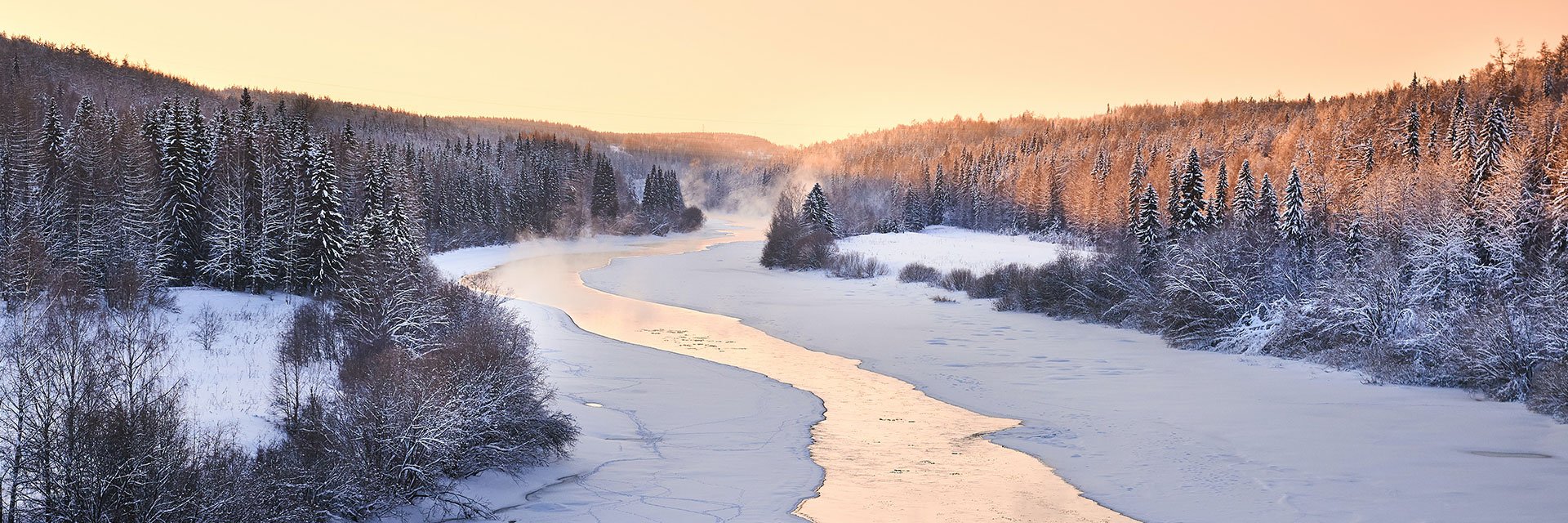
Russia – Cooperation on water, air, nature, and environmental protection
Since the start in 1989, the Swedish EPA’s cooperation with Russia has led to implementation of projects in a wide range of areas, from marine environment and nature conservation to environmental protection and sustainable cities.
Cooperation on hold
By reason of the Russian aggression in Ukraine, launched on 24 February 2022, the Swedish-Russian authority cooperation on environment is on hold. Since this cooperation has played a significant role in the portfolio of the Swedish EPA, interconnecting also to the cooperations within the Arctic Council and Barents Cooperation, the information below describes the situation as it was when the pause was initiated.
Background
During the period 1995–2007, the cooperation was carried out with aid funds from Sida, but from 2008 it is being financed by the environmental budget as part of Sweden’s strategic environmental policy.
The cooperation is based on mutual benefit and connected to international conventions, agreements or other issues addressed by the environmental policy priorities of both countries. Therefore, several projects are linked also to the Arctic Council, the Barents Euro-Arctic Council or the Helsinki commission’s (HELCOM) work on the Baltic Sea.
Current bilateral programme
In October 2019, the Swedish EPA together with the Ministry of Nature Recourses and Environment of the Russian Federation had the 14th Joint Committee meeting where a new bilateral work programme was signed for the years of 2019–2021. The programme includes the following areas:
- Water and marine environment, including environmental monitoring.
- Nature conservation and biodiversity.
- Climate and air, including the short-lived climate-changing pollution.
- Environmental protection and Best Available Techniques (BAT).
- Waste, chemicals, and sustainable development of cities.
The Swedish EPA is in charge of the overall programme coordination on the Swedish side. Other Swedish authorities, such as the Swedish Agency for Marine and Water management, are also involved in the cooperation.
Water and marine environment
Coordinated by the Swedish Agency for Marine and Water Management (SwAM), the area of Water and Marine Environment comprises eight projects. These address for example sea planning in the Baltic Sea, an action plan for wild salmon in the Luga River, and strengthening of Russia’s ability to measure and report on the environment through HELCOM's reporting system Pollution Load Compilation, PLC. Other partner organisations are the Ministry of Natural Resources and the Environment of the Russian Federation, the Federal Hydrometeorology and Environmental Monitoring Agency (Roshydromet), and various marine research institutes.
Nature conservation and biodiversity
Within the framework of the area conservation and biodiversity, there are five projects dealing with issues such as the protection of threatened species and habitats, eco-tourism, and knowledge exchange around the establishment and management of protected areas. The Swedish EPA takes part in and coordinates the involvement of Swedish partners in the projects, such as county administrative boards and national park administrations. The Ministry of Natural Resources and the Environment of the Russian Federation, in turn, involves their experts as well as experts form Russian partners such as the Federal Agency for Natural Resources Monitoring (Rosprirodnazor), and various national park administrations.
Air pollution and climate change
In the area of air pollution and climate change, three projects address capacity development around climate-reducing measures. The projects include inventory efforts and different measures to reduce the level of environmentally hazardous particles (for example PM 2.5) and meet the commitments in the Paris Agreement as well as other international conventions. Central project partners are the Ministry of Natural Resources and the Environment of the Russian Federation, the Federal Hydrometeorology and Environmental Monitoring Agency (Roshydromet), and SRI Atmosphere.
Environmental protection and Best Available Techniques, BAT
In this area, there are four projects aiming to strengthening the introduction of Russia’s relatively new BAT-based environmental protection legislation. The projects include analysis and comparisons of the legal bases for granting permits in Sweden and Russia, as well as expert support on selected parts of the regulations and technical reference documents that intend to underpin the implementation of the new Environmental Protection Act. In addition, the projects include the development of training packages for environmental authorities and various industries along with preparation for an applied permit granting project. Also, various pilot projects are covered where the focus is on the application of BAT-regulations for the pulp & paper, mining and metallurgy sectors, as well as the wastewater treatment industry. Engaged partner organisations include for example the Ministry of Natural Resources and Environment of the Russian Federation and the Centre for Industrial Environmental Policy, EIPC.
Waste management, chemicals, and sustainable cities
In the area of waste management, chemicals, and sustainable cities, two projects are implemented aimed at strengthening Russian waste management, reducing landfilling, and promoting sustainable urban development by focusing on for example energy-efficient buildings and climate adaptation. In addition to strengthening the implementation of new waste legislation at the federal level, the waste management project also includes two pilot regions, Nizhny Novgorod and Volgograd. These regions seek to increase the source separation rate of households and separate hazardous waste, for example batteries and mercury-containing products from other household waste. Key partners include Moscow City Administration, the Ministry of Natural Resources and the Environment of the Russian Federation, and the regional administrations in Nizhny Novgorod oblast and Volgograd oblast.
Contact and more information
Would you like to more about the cooperation with Russia? Send an email to Åke Mikaelsson at the Swedish EPA: ake.mikaelsson@naturvardsverket.se